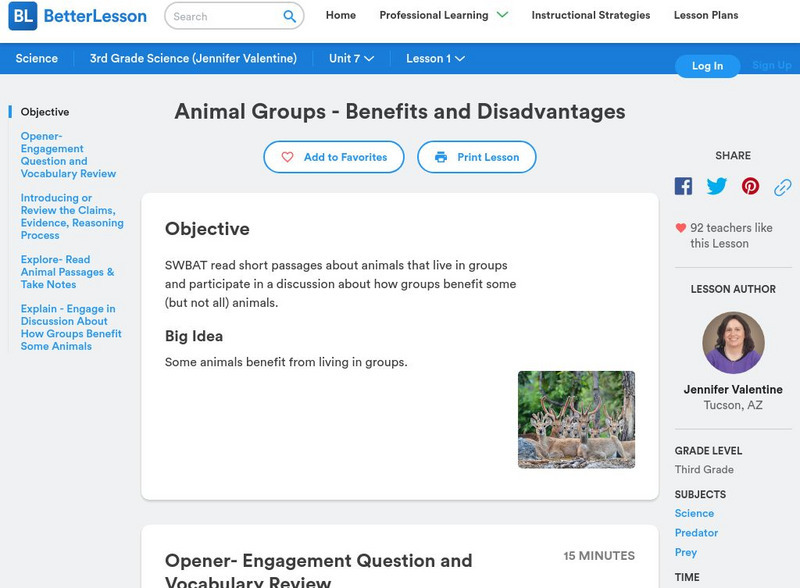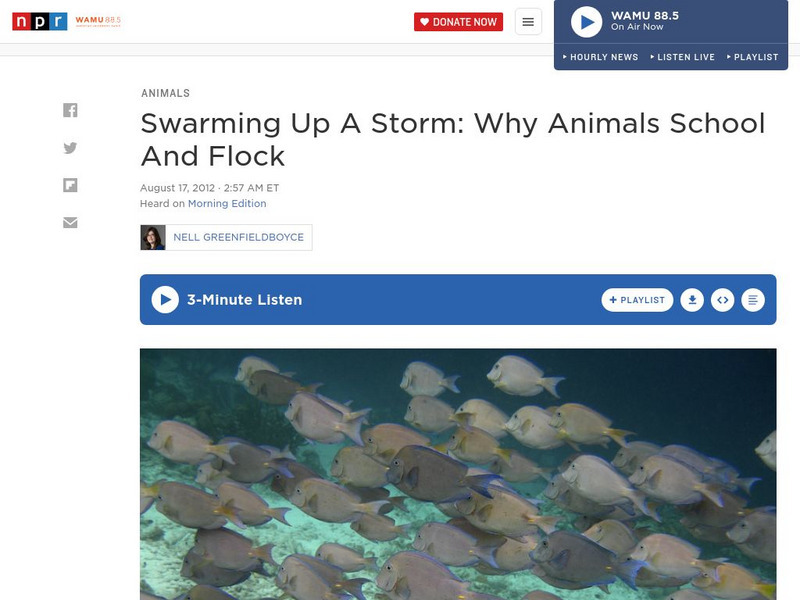Bryn Mawr College
Bryn Mawr: Ant Colonies
A study of social organization in ant populations and examines the need for a "leader" of an organization. The site is interactive and leads the user through the discovery of different roles within a colony. An extension is made to other...
Better Lesson
Better Lesson: Animal Groups Benefits and Disadvantages
Third graders read short passages about animals that live in groups and participate in a discussion about how groups benefit some (but not all) animals.
The Wonder of Science
The Wonder of Science: 3 Ls2 1: Animal Groups
Work samples, phenomena, assessment templates, and videos that directly address standard 3-LS2-1: animal groups.
ArtsNow
Arts Now Learning: Magic Rocks [Pdf]
In this lesson, students work in groups with each acting as a predator, prey, or family member in a particular habitat. They present their habitat performance to the class and students identify the habitat and animal relationships. Then,...
TED Talks
Ted: Ted Ed: Inside the Ant Colony
Ants have one of the most complex social organizations in the animal kingdom; they live in structured colonies that contain different types of members who perform specific roles. Deborah M. Gordon explains the way these incredible...
Houghton Mifflin Harcourt
Harcourt: School Publishers: Animal Communities
At this site click on the pictures to find out about an animal community in Africa. Think about how animal communities are like your community. Think about how are they different.
NPR: National Public Radio
Npr: Swarming Up a Storm: Why Animals School and Flock
Insight into why groups of animals swarm, flock, an school together.
Other
Old Farmer's Almanac: What to Call a Group of Animals?
What do you call a group of tigers? How about a group of crows? This list will tell you these animal group names along with over a hundred more.
Other
Wolf Country: The Wolf Pack
Find out about how the behavior of wolves in a pack affects their survival.
Other
Maarec: The Colony and Its Organization
Find out about the group behavior of bees in a colony.





![Arts Now Learning: Magic Rocks [Pdf] Lesson Plan Arts Now Learning: Magic Rocks [Pdf] Lesson Plan](https://d15y2dacu3jp90.cloudfront.net/images/attachment_defaults/resource/large/FPO-knovation.png)




